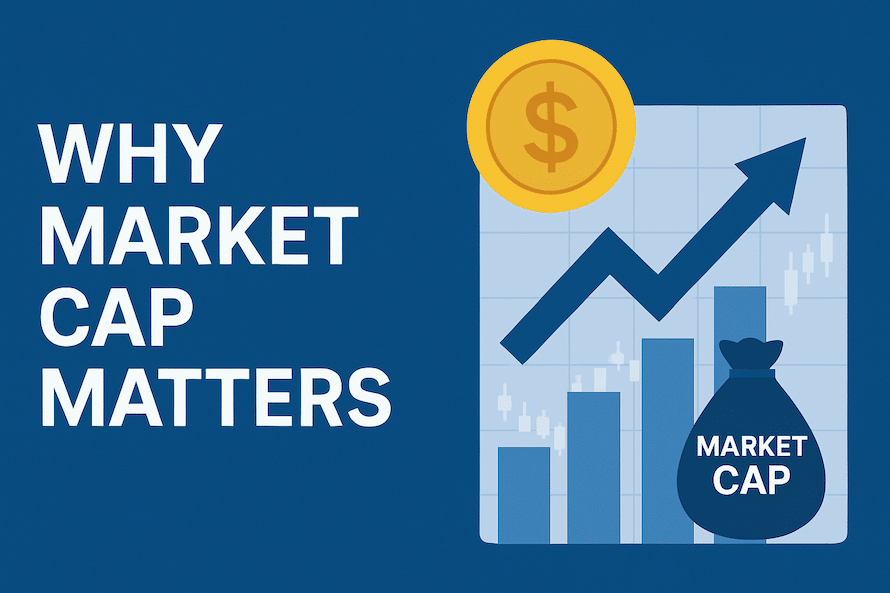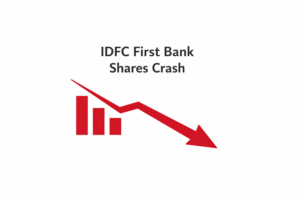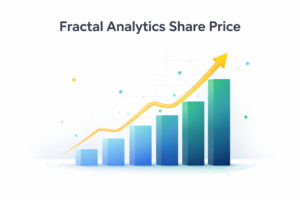Introduction: Why Market Cap Matters on BSE

When you hear people talking about the “biggest companies” in India, what they’re really talking about is market capitalization — or simply, market cap.
In plain words, market cap is just the total value of a company on the stock market. It’s like asking: if you wanted to buy the entire company today, what would it cost?
Now, why should you care?
Because market cap tells you a lot about how strong, stable, and well-known a company is. If you’re planning to invest, knowing the biggest players on the Bombay Stock Exchange (BSE) can help you make smarter, safer decisions.
We’ll see what market cap actually means, who the top companies are in 2025, and how you can use this information to build your own investment strategy.
What is Market Capitalization?
Market capitalization, or market cap, is just a fancy way of saying how much a company is worth on the stock market.
Here’s the easy formula:
Market Cap = Share Price × Total Number of Shares
For example:
If a company’s stock price is ₹500 and it has 1 crore shares out there, the market cap is ₹500 crore. That’s it. No rocket science.
Types of Market Cap
Depending on their size, companies are grouped into three buckets:
Large Cap
These are the giants — companies worth more than ₹50,000 crore.
Think names like Reliance Industries, HDFC Bank, or TCS. They’re stable, trusted, and usually less risky.
Mid Cap
Companies valued between ₹18,000 crore to ₹50,000 crore.
They’re like fast-growing teenagers — already strong but with a lot of room to grow.
Small Cap
Companies worth less than ₹18,000 crore.
These are the adventurous picks — they could explode with growth, or struggle, depending on how things go.
Top 10 BSE Companies by Market Cap (2025 Snapshot)
Now that we know what market cap means, let’s look at the real stars of the Bombay Stock Exchange.
Here’s a quick snapshot of the top 10 companies by market capitalization as of 2025:
| Rank | Company Name | Market Capitalization (₹ Cr) | Share Price (₹) |
| 1 | Reliance Industries | 1,852,403 | 1,368.50 |
| 2 | HDFC Bank | 1,469,421 | 1,919.40 |
| 3 | Tata Consultancy Services (TCS) | 1,244,857 | 3,440.00 |
| 4 | Bharti Airtel | 1,091,844 | 1,818.50 |
| 5 | ICICI Bank | 1,017,959 | 1,428.35 |
| 6 | State Bank of India (SBI) | 729,586 | 817.60 |
| 7 | Infosys | 615,597 | 1,482.20 |
| 8 | Bajaj Finance | 565,053 | 9,092.00 |
| 9 | Hindustan Unilever (HUL) | 545,116 | 2,319.45 |
| 10 | ITC | 536,167 | 428.80 |
Source – Screener.in as of 28 April 2025
What This Means
The companies on this list aren’t just big — they’re giants shaping the Indian economy.
From oil and gas to banking, tech to consumer goods, these businesses touch every part of daily life.
Get to Know the Top Players
Let’s take a quick stroll through who these companies are, and why they matter.
1. Reliance Industries
Started with textiles, now Reliance is everywhere — oil, telecom (Jio), retail, even streaming and online shopping.It’s India’s biggest company by a long shot.
2. HDFC Bank
After merging with HDFC Ltd, it’s now the biggest private sector bank in India. From loans to savings accounts to credit cards, HDFC is part of most Indian households.
3. Tata Consultancy Services (TCS)
Think of TCS as the behind-the-scenes tech brain for businesses around the world. If you’ve ever used a big app, banked online, or ordered something online — chances are, TCS had a role.
4. Bharti Airtel
Airtel isn’t just a mobile network anymore. They’re into broadband, enterprise solutions, cloud services, and now 5G too.
5. ICICI Bank
A major private sector bank, known for personal banking, home loans, and being very tech-friendly.
6. State Bank of India (SBI)
The grand old name in banking. If India’s economy grows, chances are SBI has a finger in the pie — whether it’s farmer loans, corporate banking, or government projects.
7. Infosys
Another Indian IT superstar. Apart from running software services, Infosys is big into digital transformation, AI, and automation for global clients.
8. Bajaj Finance
Need a quick personal loan, a consumer durable loan for that new phone, or an EMI card?
Bajaj Finance has probably crossed your path.
9. Hindustan Unilever (HUL)
FMCG king. From soaps to shampoos to food items — HUL’s brands (like Dove, Surf Excel, Lipton) are part of daily life for millions.
10. ITC
Best known for cigarettes (especially Gold Flake), but ITC is now a major player in biscuits, hotels, and paper products too.
What Affects a Company’s Market Cap?
Market cap isn’t carved in stone — it changes every day as share prices move. But what causes these movements? Let’s keep it simple:
- Company performance
When a company earns good profits, launches new products, or grows bigger, investors get excited. More people want to buy the stock, pushing up the price — and the market cap along with it.
Example: When Reliance Jio expanded rapidly, Reliance’s market value skyrocketed. - Overall economy
If the Indian economy is booming, companies usually do better — people buy more stuff, banks lend more money, tech companies get more work.
But if the economy slows down (like during COVID), market caps shrink. - Global factors
Believe it or not, what happens in America, China, or Europe can shake up Indian companies too.
Example: A US recession can affect Indian IT companies like Infosys and TCS because they get a lot of business from there. - Government policies
Tax cuts, new rules, infrastructure projects — they can help or hurt companies.
Example: New telecom regulations can impact Airtel’s profits and thus its market cap. - Trends and Disruptions
When new tech or new habits come in, it creates winners and losers.
Example: As India moved to online shopping, companies investing in e-commerce (like Reliance) grew faster.
Why Market Cap Matters for Investors (Without the Finance Degree)
Market cap is more than just a bragging number. Here’s why it matters for you:
- Size = Stability
Bigger companies usually have better cash flow, stronger brand names, and are less likely to suddenly collapse. That’s why investors often feel safer with large caps. - Helps you pick the right stocks
Are you a safe player? Go for large caps. Are you willing to take some risk for higher rewards? Explore mid and small caps. - Liquidity advantage
It’s easier to buy or sell stocks like Reliance, HDFC Bank, or SBI. You won’t get stuck finding a buyer. - Basis for index funds and ETFs
Popular investment products like Sensex ETFs are based on companies with the biggest market caps. So if you invest in an index fund, you are indirectly betting on these giants.
Future Trends: Who Might Rise or Fall?
If you’re planning to invest for the future, here’s what might shape the list in the next few years:
- Tech and Digital Boom
Companies like TCS, Infosys, and Airtel will likely keep getting stronger as digital services, AI, and 5G become mainstream. - Green Energy and Sustainability
Reliance’s push into solar and hydrogen energy could add a new growth engine for them. - Banking Revolution
As India’s economy grows, financial services (HDFC Bank, ICICI Bank, SBI) are expected to expand fast — especially rural banking. - Consumer Goods Growth
Rising middle-class income = more spending on FMCG products. Brands like HUL and ITC are well-positioned to ride this wave. - Global Risks
A global slowdown or new wars could drag down even the strongest companies for a while.
In short: Companies that innovate, stay relevant, and ride new trends will move up the ladder. Others might struggle.
Conclusion: Your Market Cap Cheat Sheet
Market capitalization gives you a quick sense of how “big” and “trustworthy” a company is — but it’s just one part of the story.
The top BSE companies like Reliance, HDFC Bank, and TCS are the backbone of India’s economy. They offer stability, but they’re not immune to market ups and downs. Use market cap as your starting point. But also look at profits, growth plans, debts, and the management team before investing.
Most importantly — invest according to your goals.
Whether you want steady growth or aggressive returns, there’s a mix of large, mid, and small cap stocks waiting for you. Stay informed, stay calm, and let your investments grow patiently.
FAQs
What is the biggest company on BSE in 2025?
Reliance Industries is the largest company by market capitalization on BSE as of 2025.
Which sectors dominate the top BSE stocks?
Banking, Information Technology, and Consumer Goods sectors dominate the top list.
How often does market cap change?
Market cap changes daily based on stock price movements.
Should beginners invest only in large-cap stocks?
Large caps are safer for beginners, but with time, a small portion in mid and small caps can help boost returns.
Disclaimer
The stocks mentioned in this article are not recommendations. Please conduct your own research and due diligence before investing. Investment in securities market are subject to market risks, read all the related documents carefully before investing. Please read the Risk Disclosure documents carefully before investing in Equity Shares, Derivatives, Mutual fund, and/or other instruments traded on the Stock Exchanges. As investments are subject to market risks and price fluctuation risk, there is no assurance or guarantee that the investment objectives shall be achieved. Lemonn do not guarantee any assured returns on any investments. Past performance of securities/instruments is not indicative of their future performance.
To read the RA disclaimer
Research Analyst - Gaurav Garg







